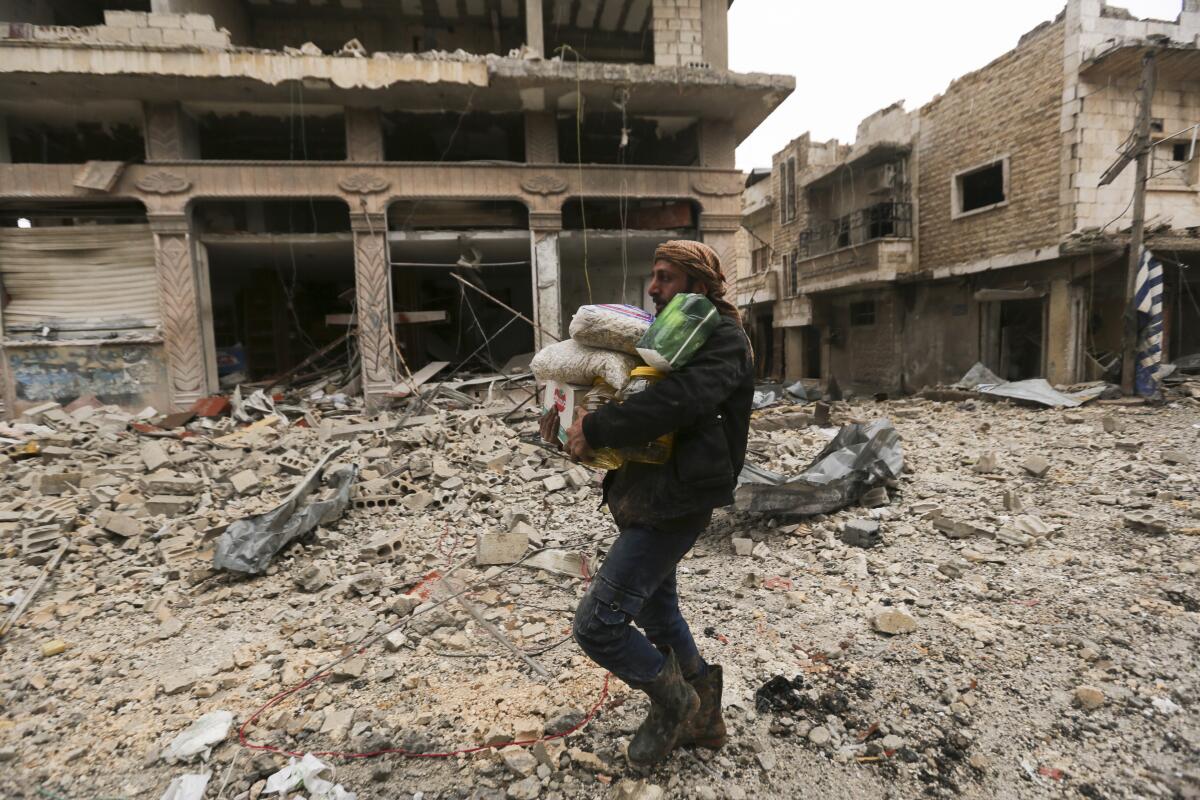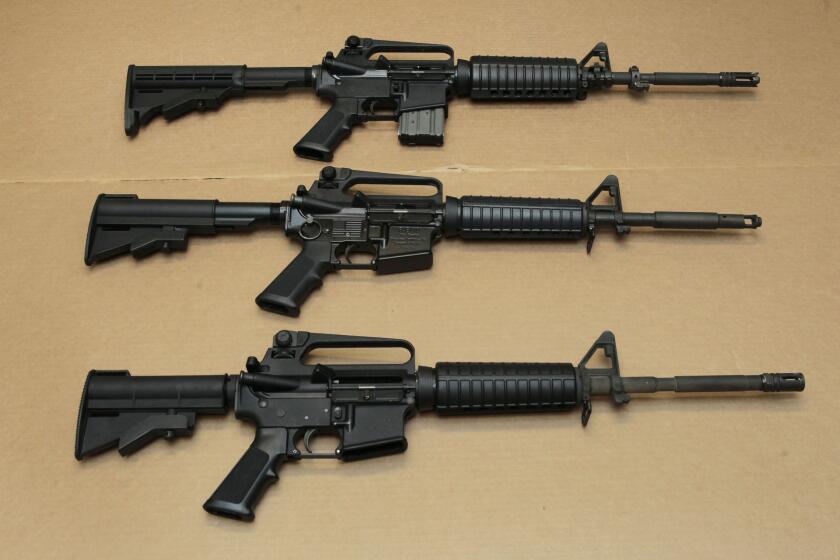Syrian advance sends hundreds of thousands fleeing in Idlib

- Share via
BEIRUT — Turkey on Friday sent more troops and tanks to bolster its military presence in northwestern Syria, where President Bashar Assad’s forces have been advancing in a devastating, Russian-backed offensive that has sparked a massive wave of people fleeing in wet and blustery winter weather.
Syria’s Idlib region near the border with Turkey is the last rebel-held bastion in the war-ravaged country. The push by Assad’s forces into towns and villages in the province over the past months has uprooted more than half a million people who fled the advancing troops. Many of them have already been displaced several times in the eight-year Syrian war.
The campaign also has angered Turkey, which backs the rebels, and brought the two countries’ troops into a rare direct confrontation: At least eight Turkish troops and civilians and 13 Syrian soldiers have been killed.
As Syrian and Russian warplanes indiscriminately pounded hospitals, clinics and schools in the enclave, civilians packed their belongings in cars, taxis and pickup trucks. They streamed toward the Turkish border with few options left that are outside Syrian government control.
Many end up in tents or sheltering in abandoned buildings during rainy and windy weather, with temperatures hovering around freezing and predicted to fall over the weekend.
“If they stay, they run the risk of falling victim to the indiscriminate violence taking place in urban areas. If they leave, they have nowhere to go,” said Lorenzo Redalié, head of the Aleppo office of the International Committee of the Red Cross. “The shelters can’t accommodate everyone, and it is more and more challenging for humanitarians to reach them and meet their needs.”
The Syrian offensive appears aimed for now at securing a strategic highway in rebel-controlled territory, as opposed to an all-out campaign to retake the entire province, including the city of Idlib, the densely populated provincial capital.
Earlier this week, Syrian government troops took control of the former rebel town of Saraqeb, which is strategic because it sits on the intersection of two major highways. One of them leads to the capital, Damascus, to the north, and another connects to the country’s western and eastern regions.
Turkey, which backs the Syrian opposition and has been monitoring a cease-fire in the rebel enclave, has protested the government assault, calling it a violation of the truce it negotiated with Russia. In recent weeks, Ankara sent in troops and equipment to reinforce monitoring points it set up to observe a previous cease-fire, which has since crumbled, and also deployed forces around towns that are threatened by the Syrian advance.
Associated Press video showed a long line of armored vehicles and trucks, some carrying tanks, filing into rebel-controlled rural areas of the province. The Britain-based Syrian Observatory for Human Rights, which monitors the war, said the new troops were deployed west of the town of Saraqeb. It was the fifth known deployment of new troops into Syria over the last week, according to the war monitor and opposition news outlets.
“It is shocking that civilians continue to bear the brunt of hostilities between all parties to the conflict,” U.N. Human Rights Office spokeswoman Marta Hurtado said.
“It appears foreign powers are battling for territorial and political gains, while blatantly disregarding their obligation to protect civilians,” she told reporters in Geneva.
Idlib and nearby rural portions of Aleppo province are the last rebel-held areas in Syria. They are home to more than 3 million people, most of them already displaced by violence.
Hundreds of thousands of people have been on the move in recent weeks, fleeing toward areas closer to the Turkish border. Many of them are being housed in temporary shelters.
Of the 580,000 people who have been displaced since Dec. 1, UNICEF estimated that about 300,000 are children.
More to Read
Sign up for Essential California
The most important California stories and recommendations in your inbox every morning.
You may occasionally receive promotional content from the Los Angeles Times.










